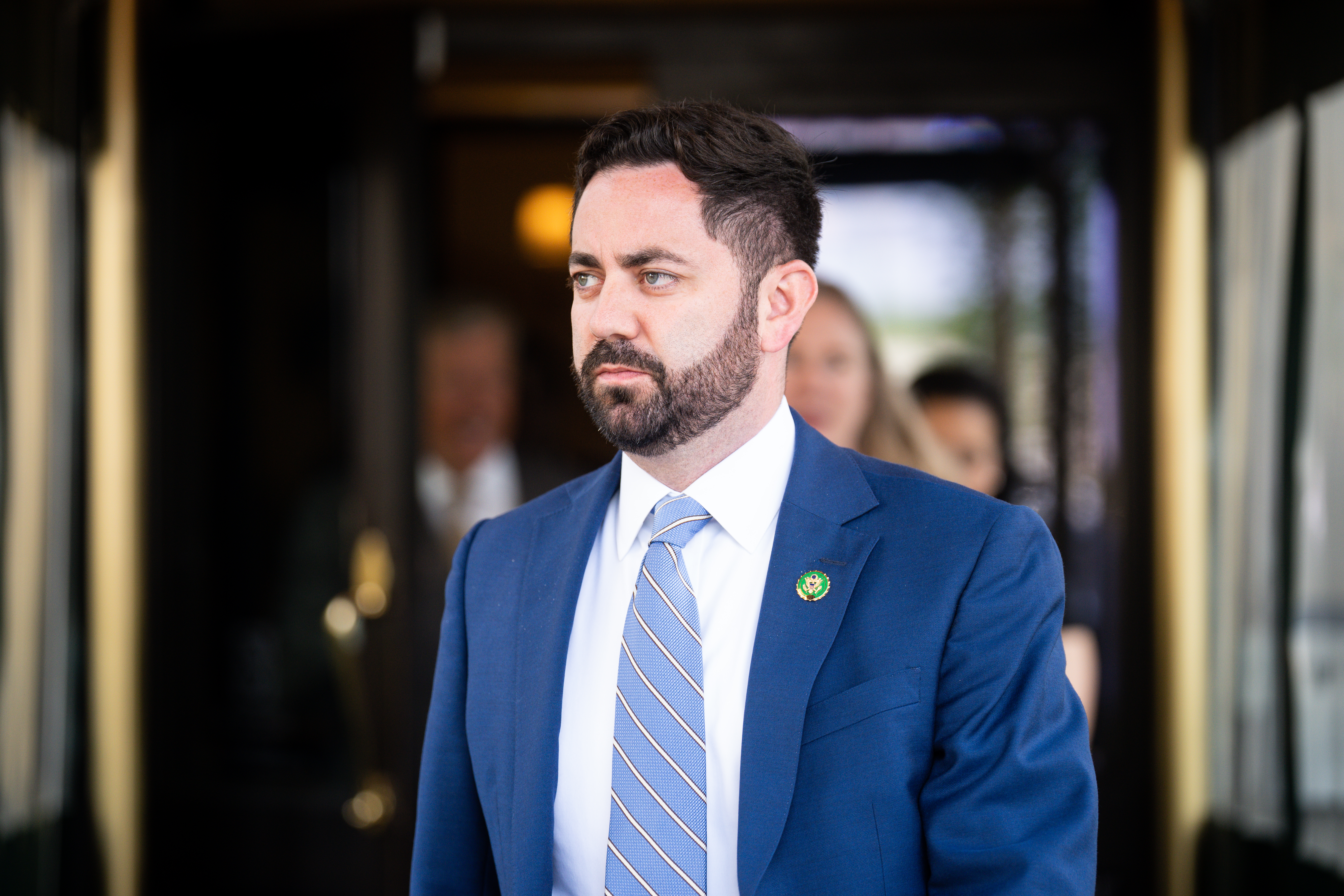House committee to vote on Lawler bill modifying Syria sanctions
The legislation stops short of full repeal of the 2019 Caesar Syria Civilian Protection Act sanctions bill that other lawmakers are pushing on a bipartisan basis

Bill Clark/CQ-Roll Call, Inc via Getty Images
Rep. Mike Lawler (R-NY) leaves the House Republicans' caucus meeting at the Capitol Hill Club in Washington on Tuesday, May 23, 2023.
The House Financial Services Committee is set to consider legislation by Rep. Mike Lawler (R-NY) this week that aims to create oversight and set conditions for lifting sanctions on Syria, but stops short of full repeal of the 2019 Caesar Syria Civilian Protection Act sanctions bill that other lawmakers are pushing on a bipartisan basis.
That the House is moving forward with Lawler’s legislation, which sets conditions for waiving Caesar Act sanctions, rather than the bipartisan Caesar Act repeal effort may indicate a level of continued skepticism from some House members about the prospect of full sanctions relief for the new Syrian government that has been pushed by the Trump administration.
“This bill modernizes the existing sanctions regime on Syria, requires assessments on existing sanctions relief provisions, and sets out goals for the Syrian government to meet anti-money laundering and anti-corruption standards,” Lawler said in a statement. “As the Trump Administration is already reviewing sanctions policy, we must ensure they have the tools to do so that reflect the current security environment.”
“The al-Sharaa Administration certainly has a lot of work to do to reintegrate Syria with the U.S. and our allies. While this job should be difficult given the circumstances, it shouldn’t be impossible,” Lawler continued.
The Lawler bill would amend the Caesar Act to allow the president to waive the sanctions as long as the Syrian government meets a number of conditions, including that it not bomb its civilian population; allow humanitarian aid, medical access and freedom of travel; releases political prisoners detained by the Assad regime and allows international human rights groups to inspect prison facilities; does not target medical facilities, schools, residential areas, markets and community gatherings; combats production and proliferation of the illicit drug Captagon; and does not target or detain religious minorities.
The legislation also extends the waiver period for the sanctions from 180 days to two years. I would sunset the Caesar Act entirely when the administration verifies that Syria has been in compliance with those conditions for two years or at the end of 2029, whichever comes sooner.
Another section of the legislation instructs the administration to brief Congress on regulatory and enforcement relief provided to the Central Bank of Syria through the Financial Crimes Enforcement Network, allowing the bank to re-integrate with the global financial system.
It also asks the administration to assess whether the Export-Import Bank should be allowed to support exports to Syria; it is currently banned from doing so.
In addition, it instructs the administration to work to support policies to combat money laundering, weapons proliferation and corruption, as well as support financial connectivity and economic growth in Syria at the International Monetary Fund and World Bank.






























































